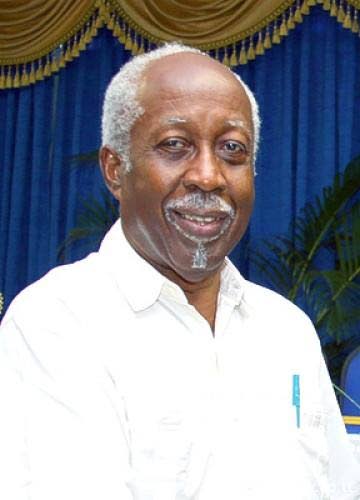Effect or cause?

REGINALD DUMAS
I KEEP asking why we spend so much time in TT obsessing over effects while managing not to focus on causes.
We wring our hands over crime, especially murder. Our reaction? Bring back the death penalty (did it ever leave?). Have 24-hour police patrols in hotspots. Install more surveillance cameras. Pray; God will hear – after all, he doh sleep – and intervene. (The shooters must now be quivering in their Adidas sneakers.)
We wring our hands over school violence. Our reaction? Covid19 severely damaged youth socialisation (apparently, there was no such violence before covid), so increased aggressiveness is to be expected. Parents must be “responsible,” and instill discipline and respect. Have a constant police presence at hotspot schools. Suspend or detain malefactors.
We wring our hands over domestic violence. Our reaction? It must stop, so we’ll have a march. Or, “I eh know why he do dat, nah. Ah mean to say, she was a nice lady. Buh yuh see me, I eh gettin’ in dat, nah. Dah is husban’ an’ wife t’ing.”
With the greatest respect, what impact have all such reactions – prayer, marches, patrols, seminars, appeals to gunmen, even announced government policies, etc – had on the rising rate of disorder and crime – murders, home invasions, daylight executions, school brawls, domestic abuse, etc?
The truth is that we have been our usual piecemeal selves, emoting over the matter immediately before us but giving little or no thought to why the matter is before us, and what should or could be done about it. This attitude goes beyond crime; superficiality has become a prominent characteristic of our behaviour. It’s generally accompanied by finger-pointing, invective, avoidance of personal responsibility (but with much emphasis on our rights), and invented “facts.”
So, increasingly, there is a concentration on appearance rather than on substance, whatever the subject may be. The social media, frequently anti-social, have done much to create and expand that mentality and outlook. Venting has become a way of life; thought and reflection have receded.
To my mind, crime is a societal problem, and has to be viewed through those all-inclusive lenses, not in compartments. If TT has reached the current pass – and many expect a continued degeneration – surely we should long ago have asked ourselves why we we're declining, and sought in a structured way to stop or slow the process? And reverse it?
Many issues spring at once to mind. For instance, how many parents are now “responsible” in the way parents were 50 years ago? How many, especially in this difficult period, do their best but are helpless against the power of peer pressure and easy access to the internet? How many even know about good parenting?
Did domestic violence suddenly appear? Has it been aggravated by socio-economic conditions? Did human trafficking, a particularly degrading form of violence, begin only this year?
Is there a race factor in crime, violent or not? Is it mostly young blacks involved? If so, why? And what could and should be done about it?
Ten years ago, a committee chaired by the late Selwyn Ryan published “No time to quit: engaging youth at risk”, a report on young males and crime in TT. In its executive summary, the report said:
“This report…seeks to put in perspective equity vis-à-vis equal opportunity. It seeks to move beyond the narrow concept of sameness and to embrace the concepts of difference in the…society of Trinidad and Tobago. The report argues that the young male population that is more at risk of directly being caught in the criminal world of drugs, guns and deadly violent crime are of African descent, especially those located in urban ‘hotspots’ such as Laventille. At the same time, it focuses on the different problems which young Indo-Trinidadian males face in areas of central Trinidad…It also addresses the way in which women and young girls are both drawn into crime or become victims of the effects of male involvement in crime.”
What efforts have been made in the last decade even to study the report?
And what has happened to the Anthony Watkins report on community recovery? So far as I know, it has never been published. Which communities were deemed to need “recovery?” Surely not the same ones identified by Ryan all those years ago?
How are we to fare better as a nation unless we examine our society as a whole, in all its different aspects, to help us identify our strengths and weaknesses and provide a proper blueprint for action? When will we begin to unearth and confront causes of conduct, which would greatly assist in avoiding, or overcoming, many of the negative effects that now afflict us?

Comments
"Effect or cause?"